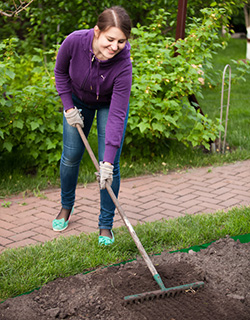 Composting is the natural process of breaking down organic materials into fertilizer. In our modern world, unwanted items go into the trash by default. Trash is stored in a landfill or incinerated. This process is an utter waste of resources. Composting has many benefits for the household and the earth. Finished compost also creates free fertilizer for the garden. Let’s find out the benefits of composting and, more specifically, composting with worms.
Composting is the natural process of breaking down organic materials into fertilizer. In our modern world, unwanted items go into the trash by default. Trash is stored in a landfill or incinerated. This process is an utter waste of resources. Composting has many benefits for the household and the earth. Finished compost also creates free fertilizer for the garden. Let’s find out the benefits of composting and, more specifically, composting with worms.
Household Composting Benefits
You know how household trash has a bad odor after a couple of days? The odor is caused by anaerobic bacterial growth in the organic matter. Kitchen scraps such as peelings and left-overs begin to decay. However, the trash bag doesn’t have much oxygen. Thus, bad bacteria proliferate and stink up the bag. Organic matter makes up about 35% of household waste. If you compost this waste, you will:
- Reduce the volume of your household trash by approximately one third. Lighter bags, fewer bags.
- Save on trash costs. Some households find it cheaper to cancel curbside pickup after they start composting and recycling. Throwing packaging out directly after checkout, bringing your own bags, and paying by-the-bag at the dump could save money.
- Eliminate trash odor, except when you discard meat, dairy, and other non-compostable waste. Tip: Keep them in the freezer until trash pickup day.
- Discourage pests from getting into your trash. No food means no pests.
Benefits of Applying Compost to the Soil
The end result of composting is organic fertilizer. Composting harnesses the natural process of decomposition. Wasted vegetation breaks down into simpler components. This fertilizer has many benefits:
- Increases nutrient content in the soil. Finished compost is made mostly of nitrogen, phosphorus, and potassium. Also, it has trace minerals and micronutrients that are usually absent from commercial fertilizer. This includes sulfur, carbon, magnesium, calcium, boron, copper, iron, iodine, zinc, and manganese.(1)
- Improves soil aeration. Adding compost to soil creates little air pockets.
- Reduces erosion. The more cultivated a land is, the less it will erode in the rain.
- Helps the soil drain properly. If the soil is loose or sandy, compost increases water retention. In clay or other heavy soil, compost helps with drainage.
- Improves soil texture. Plants grow deeper roots in the right soil texture.
- Helps regulate soil pH. Most plants need slightly acidic soil. Compost buffers soil pH by absorbing salt ions. Therefore, the salt is available to the plants because it is less likely to wash away. Also, all critters and plants that live in soil prefer a steady pH.(2)
- May reduce plant disease. While studies have not been conclusive, compost appears to be associated with less disease in plants.
Benefits of Composting with Worms
Composting can be as simple as chucking organic matter into a pile or bin outside. Microbes, fungi, insects, and soil-friendly bacteria will break down the vegetation over time. A few worms might find their way into the pile. They will eat the organic matter and excrete nutrient-rich “humus.”
Vermicomposting directly harnesses the power of worms to improve the composting process. Large numbers of worms are added to the compost bin all at once. The best composting worms are Red Worms. These champion composting worms are hearty and hungry. Vermicomposting is done in “bedding” consisting of coconut coir, shredded black & white newspaper, pure peat moss, composted leaves, and other material. Benefits of composting with worms include:
- Fast! Add 500 or more red worms to the composting bin and they will start chowing on bedding and vegetation. Under ideal conditions, they can eat half their weight in vegetation each day.
- Less odor than regular composting. The worms break down the vegetation faster, reducing rot and odors. Organic matter should be buried so the worms can find the food easily. Covered worm food emits less odor into the air.
- Indoors or outdoors. Apartment dwellers often can’t place a compost bin outdoors. Some householders find indoor composting more convenient. Regular composting is not fast enough for indoors. Composting worms quickly and efficiently eat the organic waste. Therefore, vermicomposting can be done inside, or outside.
- Better quality finished compost. Worm castings contain the worms’ gut bacteria and mucus. These microbes and substances are very helpful to plants. Vermicompost has more nitrogen-fixing bacteria than conventional compost. Vermicompost helps make minerals in the surrounding soil available to plants more quickly. Additionally, a Cornell study found that compost made by worms helped prevent Pythium aphanidermatum. This a pathogen damages greenhouse plants.(3)
Conclusion
Composting reduces trash volume and odor and creates a perfect organic fertilizer. Add composting worms and the process goes faster; the resulting compost is even more beneficial. If you’d like to start composting with worms, browse Uncle Jim’s Worm Farm’s website. We are the #1 producer of composting worms in the USA. Purchase a bag or two of Red Composting Worms to get started. We offer easy-to-use, efficient tray-based compost bins for indoors or out. We also have European Night Crawlers, which can be used for composting but are best for releasing into the garden and yard. Check out our blog for composting information.
Endnotes:
- “What Nutrients Can be Found in Compost?” by Julie Day. Today’s Homeowner with Danny Lipford.
- “Benefits of Composting” by Robert Pavlis. Garden Myths. 2/1/15
- “Worm compost can suppress plant disease, regulate nutrients, research finds” by Aaron Munzer. Cornell Chronicle, 10/21/2011


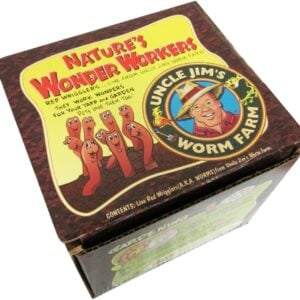
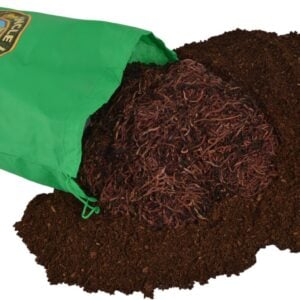
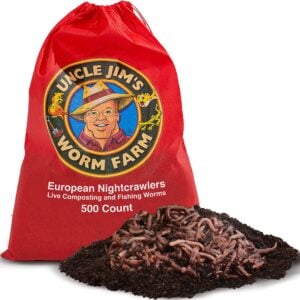
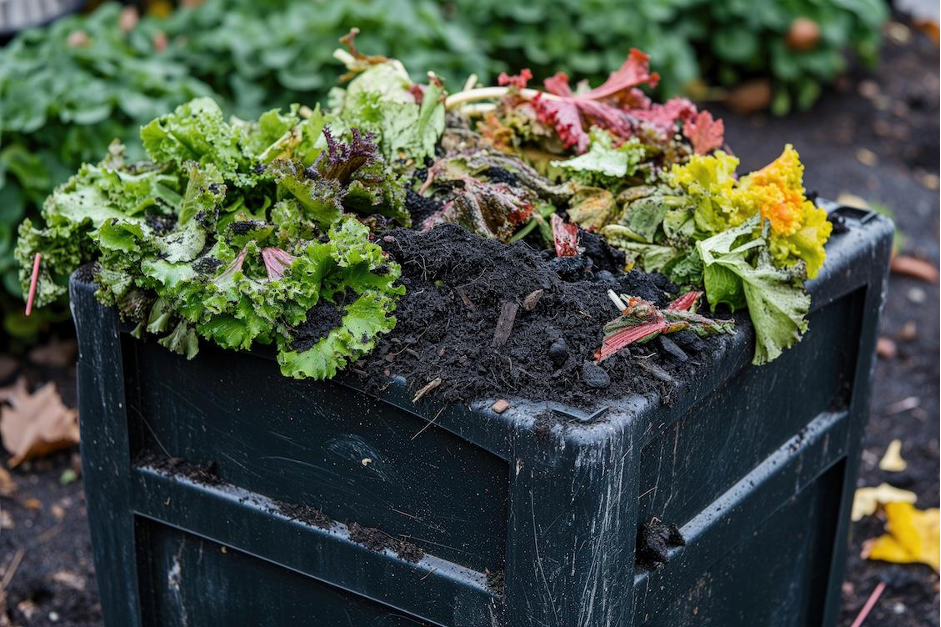

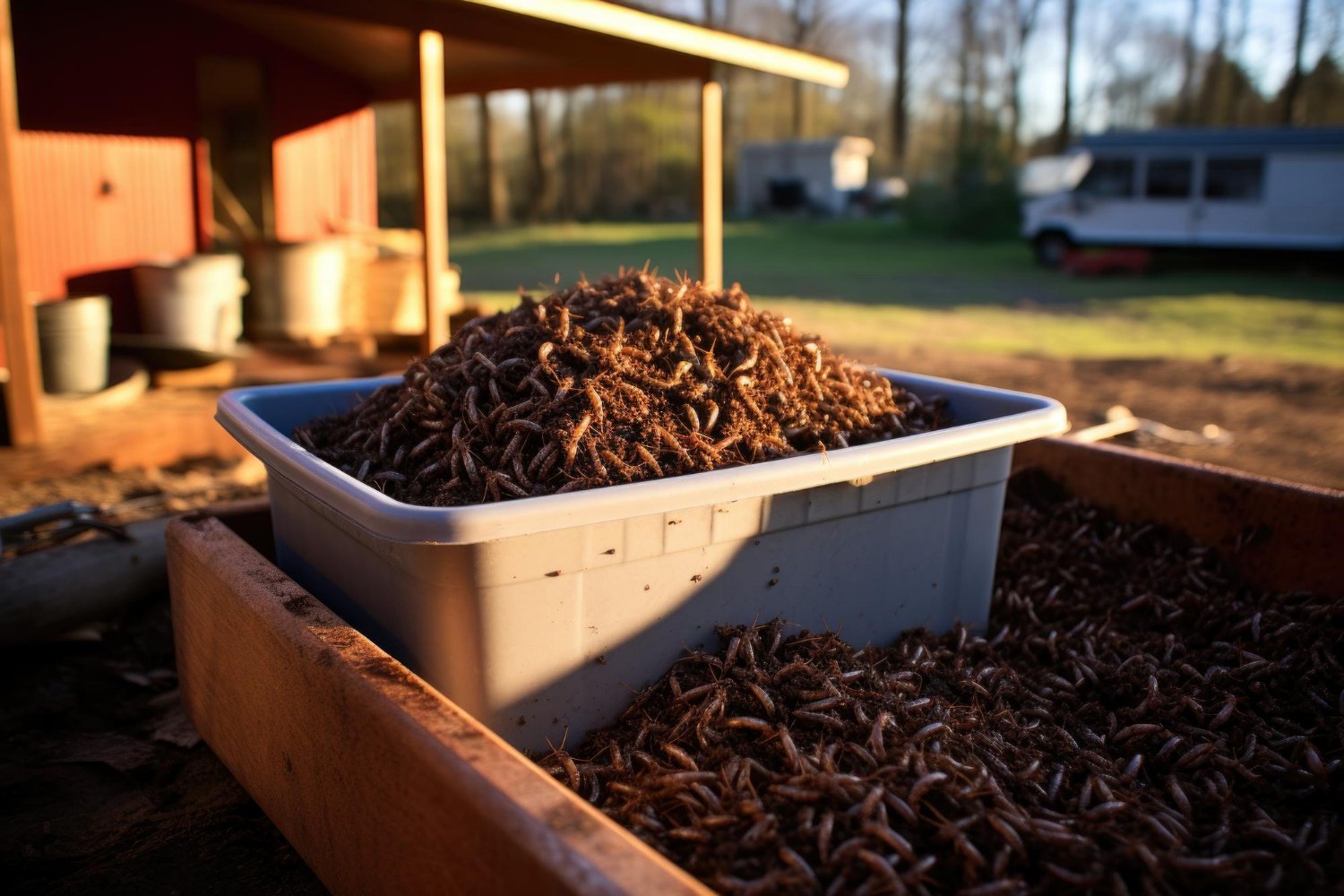
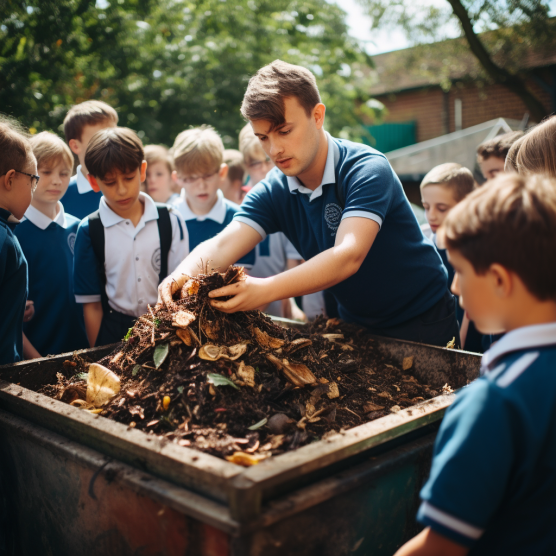
9 thoughts on “What are the Benefits of Composting?”
I agree about the claim that compost may reduce plant disease. In testing worm casting seedling mixes, I’ve observed vigorous, healthy seedling growth without sterilization. I was able to grow seedlings with no damping off in worm castings, compost and mixtures thereof. These mixes were loaded with microbes… the beneficial kind! As it turns out, researchers at Cornell have found that vermicompost can introduce beneficial microbes that colonize the surface of a seed, protecting against pathogens!
Al,
Do you know where I can find the research paper or findings from Cornell that you noted in your post? I’d love to learn more. Thanks in advance, I appreciate your help.
Roger
how do you keep your worms from freezing in the winter?
Composting is a great way of recycling our garden waste. It’s a shame that many of us do not the benefits of it.
How can I eliminate flies from laying eggs and the larvae hatching in my compost? They are taking over and the worms have no food. HELP?
can the liquid from the worm farm be directly put in to soils, and does it benefit lemon and lime plants.
You can put a moist paper on top of the worms
I appreciated you pointing out that land erodes less when it is more cultivated. My friend wants to boost their soil through worm-casting compost. I should advise her to go for it to reduce erosion.